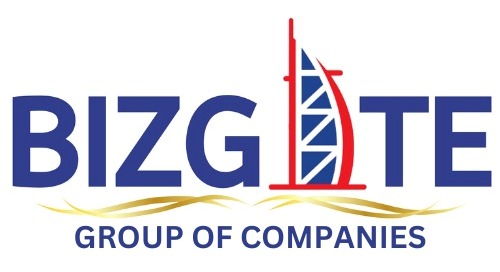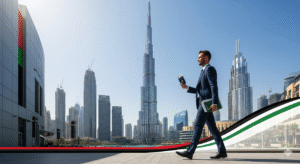Dubai Business Setup Jargon Explained: Your Simple 2025 Guide
Trying to understand Dubai business setup jargon can feel overwhelming for new entrepreneurs. If you’re wondering about the difference between a Free Zone vs. Mainland company, what a Trade License is, or why people keep mentioning an MOA, you have come to the right place. In short, this guide makes it all simple.
We will translate all the confusing terms into plain English, so you can start your journey with clarity and confidence.
Mainland vs. Free Zone: Making Your First Big Decision
First of all, you need to decide where to register your company. This single choice affects who you can do business with and the rules you must follow.
Dubai Mainland Company Setup
A Mainland company means the Dubai Department of Economy and Tourism (DET) registers your business directly. Consequently, this setup gives you the most freedom to trade. You can sell your products or services to any customer anywhere in the UAE without restrictions.
Recently, the government changed the rules to allow 100% foreign ownership for most business activities. This means you likely won’t need a local partner, which makes the process much simpler.
Dubai Free Zone Company Setup
On the other hand, you could choose a Free Zone. A Free Zone is a special economic area with its own set of rules. For example, popular zones include DMCC and JAFZA. These zones offer fantastic benefits, such as:
- 100% foreign ownership guaranteed.
- 0% corporate and personal income taxes.
- The ability to send all profits back to your home country.
However, there is a limitation. A Free Zone company typically does business internationally or with other companies inside its zone. To sell directly on the UAE mainland, you usually need a local distributor. For a deeper analysis, check out our full guide on How to Choose the Right Dubai Free Zone
Understanding Your Trade License & Key Documents
Furthermore, every business needs official paperwork to operate legally. These are the most important terms you need to know.
- Trade License: This is your official permit to operate. Above all, it is the single most essential document for any business setup in the UAE. The type of license you get depends on what your business does. For instance:
- Commercial License: Lets you buy and sell goods.
- Professional License: Lets you offer services based on your skills.
- Industrial License: Lets you manufacture or process products.
- Memorandum of Association (MOA): This document is simply the “rulebook” for your company. It lists the owners, defines the business activities, and explains how everyone will make decisions. The government requires an MOA for most LLC company formations in Dubai.
Other Important Business Terms You Will Hear
As you move forward, you will also hear these other common terms.
- LLC (Limited Liability Company): This is the most popular company structure. It creates a “corporate shield,” which means it protects your personal assets (like your house or car) from any business debts.
- Emirates ID: This is your mandatory UAE residency ID card. You will need it for almost everything, from signing a lease to opening your business bank account
- NOC (No Objection Certificate): This is just a formal permission letter. For example, if you are a resident on your spouse’s visa, they may need to provide an NOC for you to get a trade license.
Frequently Asked Questions (FAQ)
Q1: What is the cheapest way to set up a business in Dubai? Typically, the most affordable options are “flexi-desk” or virtual packages in a free zone. The free zones in the northern emirates (like Sharjah or RAK) often provide the most cost-effective solutions for new entrepreneurs.
Q2: Can a foreigner own 100% of a business in Dubai? Yes. Foreign entrepreneurs can own 100% of a company in any Dubai Free Zone. In addition, the UAE now allows 100% foreign ownership for most mainland businesses, which removes the need for a local sponsor in many industries.
Q3: Do I still need a local sponsor in Dubai in 2025? For the vast majority of businesses, no. The government has removed the requirement for a local sponsor for over 2,000 mainland business activities. Only a few strategic sectors still require a local Emirati partner.



